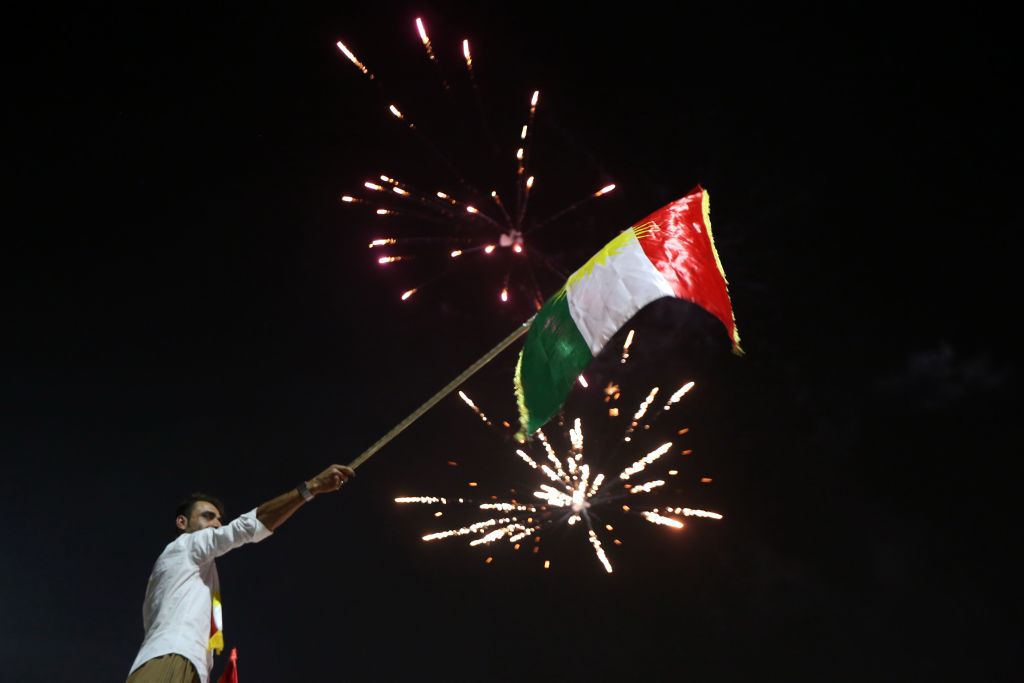The Machko teahouse in the centre of Erbil, the capital of the Kurdistan region of Iraq, has seen much of the area’s history. Founded in 1940, it survived Saddam Hussein’s oppression and years of privation. On September 25th, it was packed with patrons gathering to watch the latest chapter in the Kurdish region’s long history unfold.
Since June, when Kurdistan Regional president Masoud Barzani announced a referendum on independence, the eight million residents of this autonomous part of northern Iraq have been waiting to see if the vote would take place. On September 25th, it happened. Initial figures showed a 76 per cent turnout. The day before the election, the Gorran and Islamist Komol parties threw their support behind the ‘Yes’ campaign, meaning every major party in the region backed the vote.
The international community has generally done the opposite and opposed the Kurdish vote. The White House said it did not support the referendum. Britain did the same, calling on enter into negotiations with Baghdad instead. The UN Security Council also expressed its concern in the run-up to the vote.
But these international warnings did little to deter locals. Abdul Karim, a civil servant who served as a conscript in the army in the era of Saddam Hussein, is clear about why he voted ‘Yes’. ‘I am not scared, we are living on our own soil,’ he said. ‘I don’t want my kids to suffer like me and what I saw in my life. I want them to live in a free state.’ Karim had a message for the international community which has opposed the Kurdish vote. ‘America calls for democracy but what are they doing now? I am ready to give my life to live in a free country’. His sentiments were echoed by many in the Kurdish region.
At a press conference on the morning of the referendum, after he had voted, the Prime Minister of the Kurdistan Regional Government Nechirvan Barzani tried to allay fears that the vote would lead to conflict with Baghdad or neighbouring Turkey and Iran. ‘As Kurds we have no problem with any other nation in the world no other region or ethnic background. We are melting pot of all the countries who live here, our message to the international community is come and help us in this process.’ He said that the Kurdish region was prepared for negotiations with Baghdad that would be friendly and lead to independence.
However, Baghdad has shown no interest in discussing the referendum or compromise. He called it unconstitutional. Both Abadi and Kurdish politicians have accused each other of running a ‘sectarian’ state. Kurds tend to see Baghdad as influenced by Iranian-backed Shia militias, many of which were incorporated into the Iraqi security forces officially in 2016 as the Popular Mobilization Units. Baghdad argues that the Kurds want an ethnic state. However, KRG President Masoud Bargain and the Prime Minister have said they welcome minorities and want to create a multi-cultural state with Arabs, Turkmen, Chaldean Christians and other minorities.
The largest challenge the Kurdish region faces is not Baghdad, but Turkey which controls the economic lifeline of the region. Hundreds of thousands of barrels of oil go through Turkey, as well as much of the region’s economy. Kurds who support the referendum have tended to say that threats from Ankara to close the border are exaggerated and that it would harm Turkey economically since Turkey exports large numbers of goods to Kurdistan.
The day of the vote went peacefully, despite concerns of clashes in areas disputed with Baghdad, particularly around Kirkuk. Thousands of Kurdish peshmerga and security were deployed to protect the vote and ensure peace. Over three years of war against Islamic State, the Kurdish has acted largely independent of Baghdad, so its ability to defend its borders and run its affairs showed itself in the polling. In Erbil, lines wrapped around the block at a station in Ainkawa, a largely Christian suburb that is populated by many people who fled Isis in 2014. As night fell in the capital, thousands of cars crammed the streets flying Kurdish flags, many people had even tinted their windows with images of the Kurdish flag and Kurdish leader like Masoud Barzani. Whatever sanctions might come, they reiterated that for 100 years they have waited for this day to vote and would not be deterred.






Comments